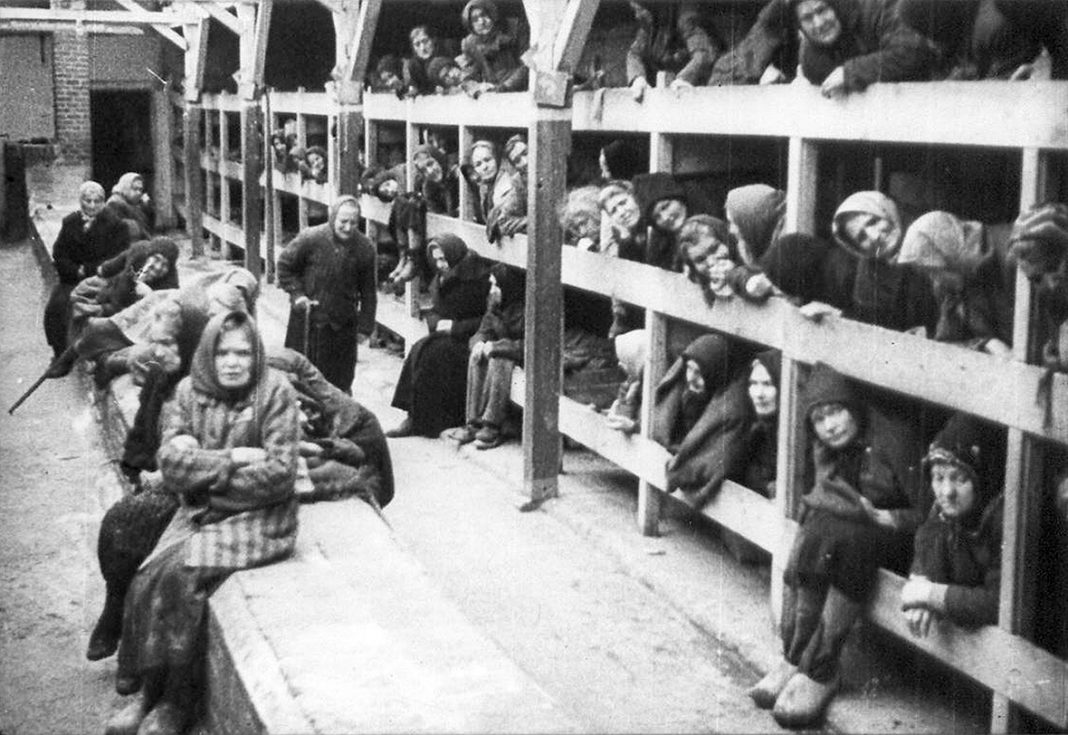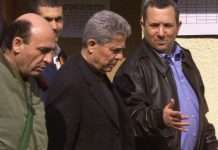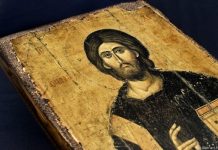A Historic Holocaust Awareness Awakening in Saudi Arabia, of All Places
Robert Satloff/New York Daily News/The Washington Institute/January 26, 2018
A Remembrance Day letter from a top Saudi religious figure is a laudable example of outreach from the heart of Islam.
Saturday, the anniversary of the liberation of the Auschwitz death camp, is International Holocaust Remembrance Day. The UN resolution that established the commemoration urges all countries “to develop educational programs to instill the memory of the tragedy in future generations to prevent genocide from occurring again.” To its credit, Saudi Arabia has taken an important first step toward fulfilling that charge.
Saudi Arabia? Land of religious purity, whose king (Faisal) once celebrated the Protocols of the Elders of Zion as historical fact, whose UN representative (Jamil Baroody, 1976) once denounced Anne Frank’s diary as a forgery and claimed the murder of millions of Jews by the Nazis was fiction? The country that not only counted among its countrymen 15 of 19 perpetrators of the Sept. 11 attacks but whose religious hierarchy exported bigotry and intolerance to mosques and madrasas around the world for decades, fueling the hate on which Al Qaeda, ISIS, Hamas and all Islamist extremist movements thrived?
Yes, that Saudi Arabia. Here’s the background.
In early December, I led a delegation of lay leaders of the foreign policy think tank I direct on a visit to Riyadh, the Saudi capital. Among the high-ranking officials we met during our three-day visit was Dr. Mohammed Al Issa, secretary-general of the Muslim World League.
This is the organization that has long been cited as the key facilitator of Saudi Arabia’s global effort to export a radical, hate-filled, anti-West, anti-Semitic version of Islam. Just last year, a prominent British research institute labeled Saudi Arabia the main source of Islamic extremism in the United Kingdom and cited the MWL as a critical linchpin in that project.
In practice, the change inside MWL appears to have begun with the August 2016 appointment of Al Issa, a former Saudi justice minister. Taking his lead from Muhammad bin Salman, the current crown prince who has vowed to cleanse his country of extremism and return it to “moderate Islam,” Al Issa seems to have a specific mandate to transform the MWL from an organization synonymous with extremism to one that preaches tolerance.
And, no less important, he has promised to remake the MWL into an organization focused solely on religion, taking it completely out of politics—except for the politics of countering extremism, that is.
I was skeptical. In Saudi Arabia, where the royal family counts protection of the holy sites of Mecca and Medina as main sources of legitimacy and public expression of non-Muslim prayer is prohibited, religion and politics are inherently connected.
But in our December meeting, Al Issa struck an impressive note. Not only did he underscore a decidedly un-Saudi commitment to religious outreach, speaking fondly of his recent visit to a Paris synagogue, he also refused to take the bait when asked about President Trump’s recognition of Jerusalem as Israel’s capital. If I expected any Saudi official to bang the table, sermonize about the Muslim connection to Al Quds and decry the President’s decision to recognize the sovereignty of the Jewish state anywhere in the city, it would have been the secretary-general of the Muslim World League. Instead, he politely declined comment, saying only that the League is committed to peace and is not a political body.
When I returned home, I wrote Al Issa, thanked him for our meeting and invited him to Washington to address my institute’s annual conference in May. But I added one more request: Should he come to our nation’s capital, I wrote, I urged him to tour the U.S. Holocaust Memorial Museum and meet with its director, Sara Bloomfield.
For more than 15 years, one of my personal passions has been to engage Arabs and Muslims in a discussion of the Holocaust. This is based on my belief that tearing down the walls of Holocaust denial so widespread in Arab and Muslim culture is a critical element in the broader fight against the hatred at the heart of Islamist extremism. I have been privileged to work with the U.S. Holocaust Memorial Museum in an ambitious effort to legitimize discussion of the Holocaust in Arab and Muslim countries and to help prevent future genocide by spreading the lessons of the Holocaust.
We have had some impressive success, especially in Morocco (where the king’s brother recently endorsed Holocaust education as an important tool in the battle against extremism) and in Tunisia (where civil society is holding a Holocaust Remembrance Day ceremony this week).
Never in my wildest dreams did I think Saudi Arabia would merit inclusion on that list of “progressive” countries. But Al Issa surprised me. I soon received a reply welcoming my invitation and agreeing to visit the Museum. While he wouldn’t be the first Muslim notable to visit the Museum, the secretary-general of the Muslim World League would be the highest-ranking Muslim religious official—an important step in the process of legitimizing Muslim discussion of the Holocaust.
A few days later, I had another “why not?” idea. With January 27 approaching, I wrote Al Issa asking whether he would send a letter to Bloomfield on the occasion of International Holocaust Remembrance Day that she could make public. The letter, I suggested, might reflect his and the MWL’s approach toward the Holocaust and the broader battle for tolerance and moderation.
At most, I expected a brief, sterile note. After all, Saudi officials don’t have much of a guidebook for how to write letters commemorating the Holocaust. But again, Al Issa surprised me. He wrote a lengthy missive, all 623 words of which have been posted, with the Holocaust Museum’s permission, on the Washington Institute’s website here. In it, he labeled the Holocaust “an incident that shook humanity to the core, and created an event whose horrors could not be denied or underrated by any fair-minded or peace-loving person.”
I will quote at length: “This Human tragedy perpetrated by evil Nazism won’t be forgotten by history, or meet the approval of anyone, except criminal Nazis or their genre. True Islam is against these crimes. It classifies them in the highest degree of penal sanctions and among the worst human atrocities ever.
“One would ask, who is in his right mind would accept, sympathize or even diminish the extent of this brutal crime. However, our solace is that the memory of history is fair and vivid; and a justice, free of any other inclinations, would mourn this crime on behalf of all humanity. The victims have sacrificed their innocent lives to pen a memorable reminder of freedom and determination, an example of the extent of Nazi hate which has sunk the world into wars and disasters.”
On Holocaust denial, Al Issa had particularly harsh words:
“History is indeed impartial no matter how hard forgers tried to tamper with or manipulate it. Hence, we consider any denial of the Holocaust or minimizing its effect, a crime to distort history, and an insult to the dignity of those innocent souls who have perished. It is also an affront to us all, since we share the same human soul and spiritual bonds.”
And unlike many Muslim interlocutors with whom I have discussed these issues over the years, Al Issa did not try to deflect potential criticism of engaging on the Holocaust by wrapping himself in the false equivalence of Israel’s “genocide” of Palestinians. To the contrary, he stayed away from the issue altogether and instead affirmed the apolitical policy enunciated in our Riyadh meeting: “The Muslim World League is entirely independent of any political aims, tendencies or otherwise. It does, however, express its opinion with utter neutrality; an impartiality that doesn’t carry any political tone at all.”
All in all, it is a remarkable document—remarkable for its authorship, content, breadth and message. I assume there are many reasons—some sacred, some less so—why the head of the Muslim World League took pen to paper to denounce Holocaust denial. As my teenage son likes to say, this is not my first rodeo. But action matters so much more than motive. And having been written, Al Issa’s words cannot easily be undone. Thanks to him, this International Holocaust Remembrance Day will be recalled as the one in which Saudi Arabia—defender of Islam’s two holiest sites—took a giant step toward joining the world in its recognition of the enormity of the Holocaust. Is more to be done? Absolutely. But let’s give credit where credit is due.
*Robert Satloff is executive director of The Washington Institute and author of Among the Righteous: Lost Stories from the Holocaust’s Long Reach into Arab Lands.























